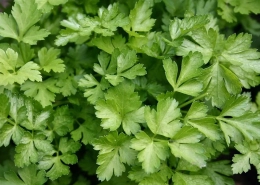How to Grow Herbs
The term ‘herb’ in common usage refers to different varieties of aromatic leafy greens that are used to enhance the flavour and aroma of culinary dishes, or those with specific medicinal properties (like Tulsi). Some culinary herbs common in Western style cooking are Parsley, Sage, Rosemary, Thyme. In Oriental cuisine, herbs like Basil, Chives, Lemon Grass are prevalent. In Indian cooking, Mint (Pudhina), Coriander (Kothamali), and Curry leaves are widely used. Culinary herbs that may be grown in Chennai are mostly local varieties of herbs, as well as herbs that can tolerate hotter climes like lemon grass and basil. Given Chennai’s tropical climate, most herbs require partial shade to thrive and it is often very hard to grow exotic herbs like Rosemary since they require much cooler climate.
Apart from climate and shade considerations, herbs are quite easy plants to grow and the growing method is more or less similar to greens. The major difference being that for herbs, seeds need to be sown in holes / ridges / furrows. Whereas for greens, seeds are sprinkled. Some herbs like curry leaves or mint can also be grown through the use of saplings. In general, herbs propagated through seeds are directly sown in the soil, and those grown from saplings are directly planted.
You can herbs in pots/containers indoors, as well outdoors. Sow the herbs directly into the soil between rows of vegetables, or as edging to beds. If growing in pots, sow the seeds in the pots with compost rich soil / potting mix. Cover the container with a clear plastic bag or piece of glass after sowing the seeds and place somewhere bright and warm for the seeds to germinate. Once germinated remove the cover and allow to grow.
Irrespective of what container is used, you need to have adequate number of drainage holes to allow excess water to drain. Some herbs like mint can be invasive so it is recommended to grow them in sunken containers to restrict root growth if growing outdoors, instead of directly planting in the ground. You can bury mint container pots so that the tops are hidden under a thin layer of soil. When growing mint in a container, lift and divide the plant yearly to maintain health and vigour.
Herbs grow well with rich soil that contains lots of compost. Feed your pot-grown herbs regularly with natural fertilizer throughout the growing season but make sure you do not over feed the plant as this can cause the leaves to lose their pungent flavour. Check the herbs regularly, especially those grown in containers, for rotting and weakness. If the plant shows such signs, repot into another container by lifting the plant, teasing apart the roots and removing as much of the old soil as possible.
Herbs that can be grown on windowsills include chives, basil, coriander, mint, Indian Borage. These herbs should be harvested often to encourage further growth but care should be taken to pick not more than a third of the leaves from the outside of the plants, keeping the central parts intact. It is recommended to harvest herbs in the morning, before it gets too hot to prevent essential oils from evaporating.
Herbs that do well outdoors include Lemon Grass, Citronella, Curry leaves.
REFERENCES
Personal Conversation with Mrs. K. Parimala, Sempulam Sustainable Solutions Private Limited
https://www.thompson-morgan.com/how-to-grow-herbs
https://indiagardening.com/gardens/indian-herb-garden-kitchen/
https://www.thebetterindia.com/63695/herb-garden-home/

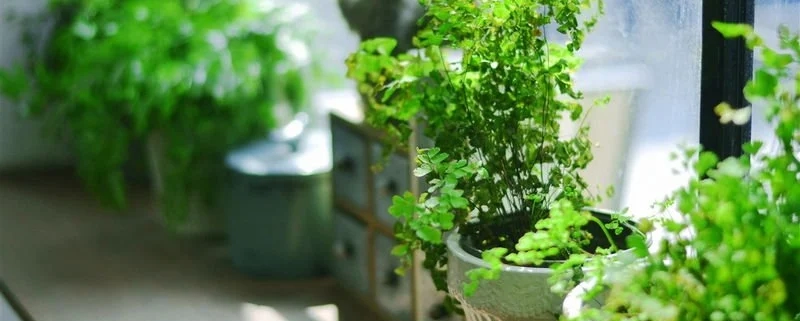
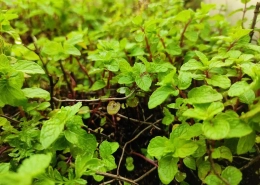 © Tanuj Handa
© Tanuj Handa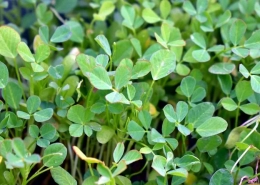 © Sandeep Handa
© Sandeep Handa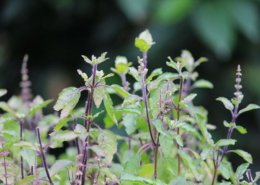 © Chinmayee Mishra
© Chinmayee Mishra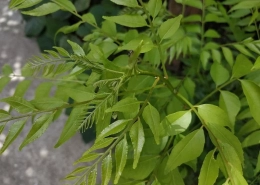 © Nirajan Pant
© Nirajan Pant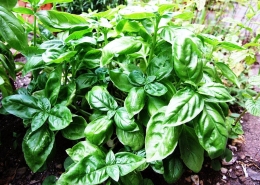 © Castielli
© Castielli